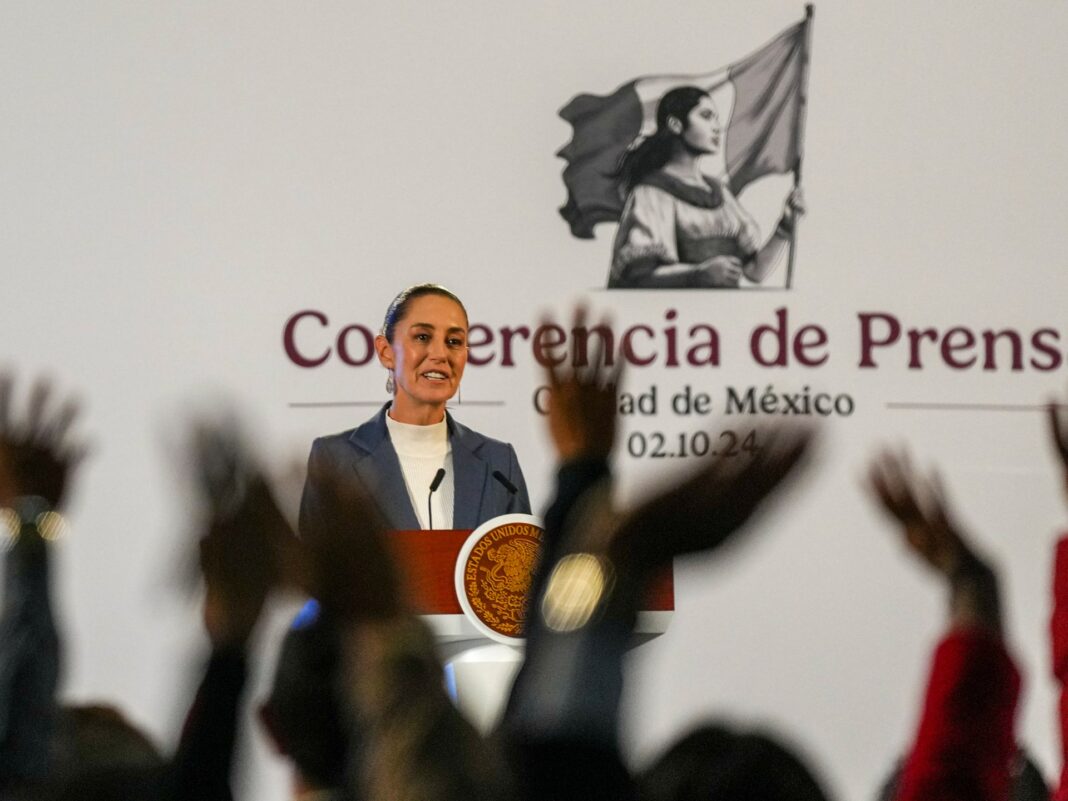An evening vote in Mexico’s Senate to dismantle seven independent government watchdogs has ignited controversy, with the country’s political opposition accusing the governing Morena Party of violating democratic principles.
On Friday, the leader of the right-leaning Institutional Revolutionary Party (PRI) took to social media to express his outrage.
“The elimination of these autonomous organisations represents a direct attack against the rights of Mexicans and even democracy itself,” Alejandro Moreno Cardenas, the PRI’s president, wrote.
He praised the seven watchdogs as “pillars of transparency and accountability that guaranteed to the people of Mexico access to clear information about the actions of the government”.
His comments came after Mexico’s Senate held a vote on Thursday to fold the seven oversight bodies into existing executive agencies, under Mexico’s President Claudia Sheinbaum.
Sheinbaum and her fellow Morena Party members have described the reform as a chance to cut down on government bureaucracy and reduce spending.
However, critics fear the dissolution of the watchdog agencies will make the government more vulnerable to corruption and weaken public confidence in Mexican democracy.
“We will firmly defend the transparency and rights of our country. Mexico does not deserve to go backwards!” Moreno Cardenas said, accusing the Morena Party of an “authoritarian” streak.
One of the agencies in the crosshairs is Mexico’s Institute for Information Access and Transparency (INAI), which played a key role in pushing the government to release information about the 2014 Ayotzinapa case, which saw the kidnapping of 43 college students.
Mexico’s military had been implicated in the kidnapping, and the government investigation was marred by allegations of false evidence and coerced confessions.
Other organisations earmarked for dissolution are the Federal Telecommunications Institute (IFT), the Energy Regulatory Commission (CRE), the National Hydrocarbons Commission (CNH) and the National Commission for the Continuing Improvement of Education (MEJOREDU).
The bill to disband these government bodies passed through the lower house of Mexico’s Congress, the Chamber of Deputies, last week after a tense debate. A total of 347 deputies voted in favour and 128 against.
The Senate on Thursday likewise advanced the measure, by a vote of 86 to 42.
The proposal now goes to the individual states to approve: Mexico has 31 states and one federal entity for the capital, Mexico City. At least 17 of their governments must back the measure for it to be successful.
But with a majority of state legislatures controlled by the Morena Party, the measure is likely to pass. Already, the state government of Zacatecas, as well as the government of Mexico City have approved the reforms.
The elimination of the seven watchdogs has been a longstanding priority of the Morena Party — and particularly its popular figurehead, former President Andres Manuel Lopez Obrador.
During his six-year term, which ended in September, Lopez Obrador repeatedly clashed with oversight agencies like INAI, accusing the body of wasteful spending, bloated salaries and political bias. He ultimately unveiled plans to dismantle INAI in 2021.

His successor Sheinbaum, a close political ally, has carried forward several of his key legislative priorities, including the plan to disband INAI.
Speaking at a morning news briefing, Sheinbaum defended the Morena Party’s push to fold the seven watchdogs, paying special mention to INAI.
“There will be more transparency now. The dissolution of INAI as an autonomous body will end corruption and will develop a system of transparency where people can easily access information on everything the Mexican government does,” Sheinbaum said.
But media rights groups and government transparency organisations have denounced the move as a threat to Mexican democracy.
Earlier this month, for instance, the Mexican Association for the Right to Information (AMEDI) issued a statement expressing its “rejection” of the proposal.
“The technical autonomy and political independence of these bodies is a fundamental principle for the democratic functioning of our society,” AMEDI said.
“Subordinating the functions of these bodies to the federal executive branch or related agencies increases the risk of politicisation and threatens the impartiality of decisions that affect all citizens.”
Fernando Nieto-Morales, a professor at the Colegio de Mexico, likewise called the move an erosion of “critical institutional checks and balances” in an article for the Wilson Center, a US-based think tank.
“This impending constitutional reform represents a profound setback for Mexico’s democratic trajectory,” he wrote.
Speaking to Al Jazeera, journalist and author Manu Ureste emphasised the importance of groups like INAI.
He and other journalists sent more than 500 freedom of information requests to INAI in recent years to expose a government embezzlement scandal, popularly known as the “master scam”, that used fake companies to launder public money.
“Without this transparency tool, we would never have known about this ‘master scam’ or many other such cases. I think it is a key part of Mexican democracy,” Ureste said.
The fate of the millions of documents in INAI’s possession now remains unclear. Hours before the Senate’s vote, the head of INAI, Adrian Alcala, spoke to Al Jazeera’s Julia Galiano about the importance of his agency’s work.
“There is nothing comparable to INAI in the world,” Alcala said.
“Developed countries with advanced democracies look to the Mexican model when it comes to transparency. It is legally and institutionally robust. It’s been effective in bringing some order to this country and also in fighting corruption.”







